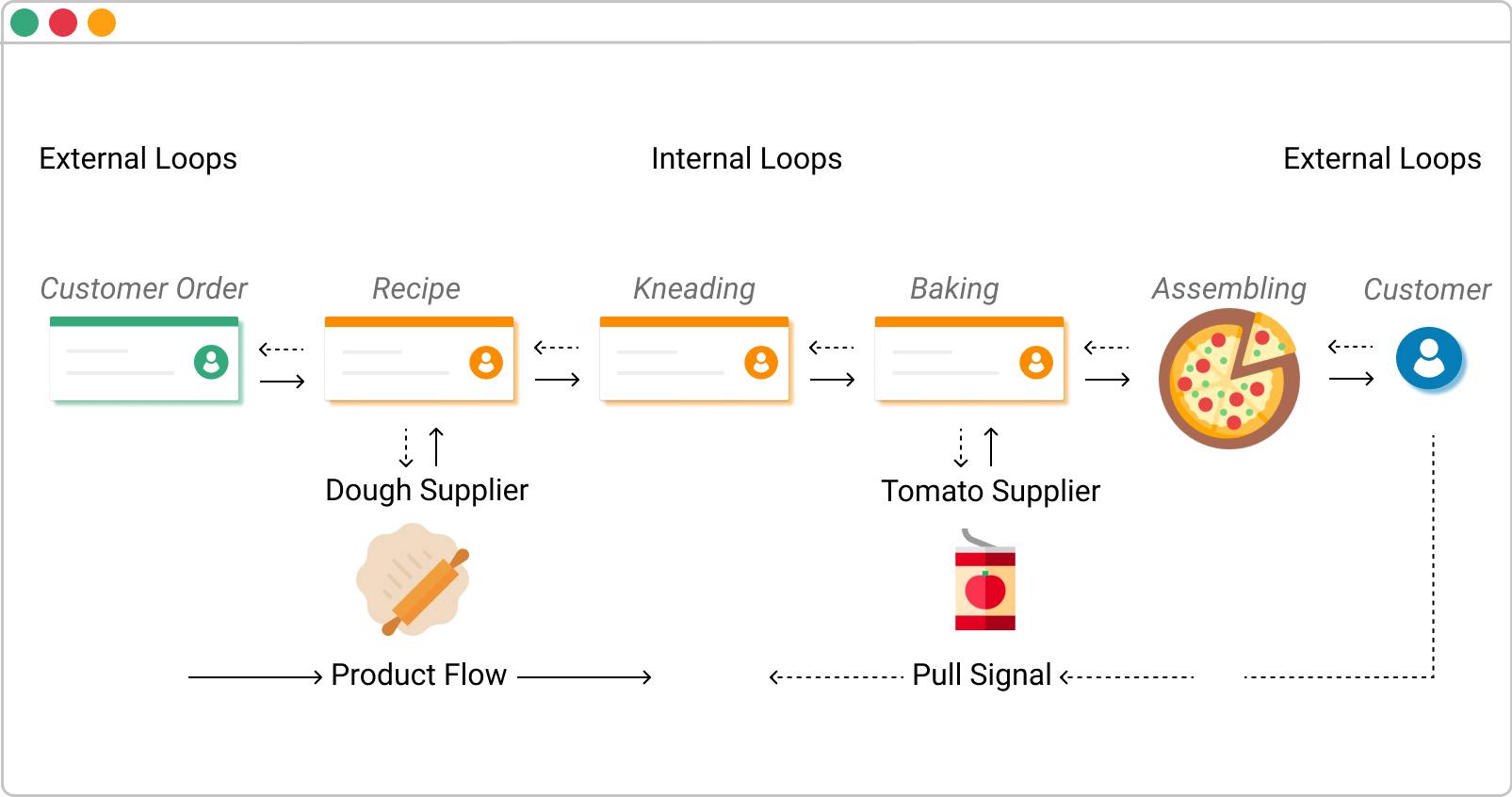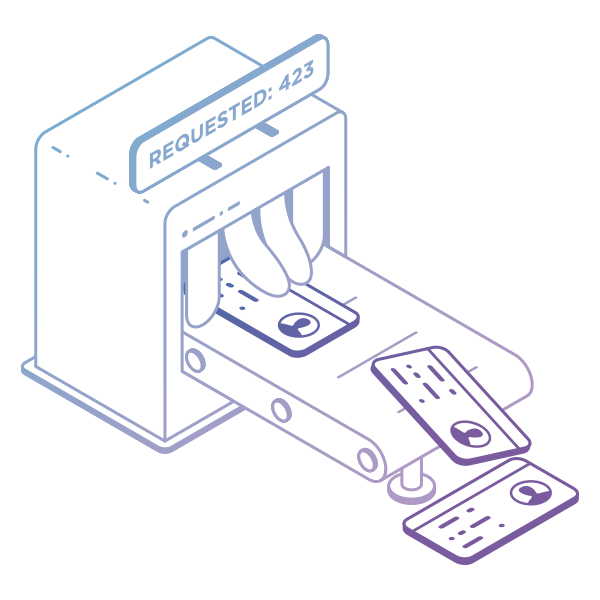It was not so long ago when organizations were overstocking their warehouses with resources just in case a customer demand appears.
However, having a lot of inventories automatically means higher costs for maintaining these extra resources. Logically, more inventories require more space and an additional workforce.
In the middle of the 20th century, struggling to reduce its high inventory costs, Toyota built the foundation of Lean manufacturing.
They decided to apply a simple principle, which became the main pillar of the Toyota Production System - Just-in-time (JIT) production. A simple inventory system where you only produce if there is a demand for your production.
How Just-in-time Manufacturing/Production Was Born
After World War II, Japanese manufacturers faced several challenges: lack of money, lack of space to build large warehouses, and lack of natural resources.
All these factors put a roadblock that Japanese manufacturers had to remove in order to find their way to industrial success. Then, Toyota came up with a simple solution – they just made their processes lean.
 Image Source: www.toyota-global.com
Image Source: www.toyota-global.com
The lean management of their resources was built upon the Just-in-time production philosophy. A concept based on removing waste from business processes to achieve a streamlined, highly efficient system that provides low-cost and high-quality products to support customer needs.
It took years for Toyota to perfect the Just-in-time production management, which is now popular across various industries and applied by some of the most successful companies, such as Dell, Harley-Davidson, and McDonald’s.
Benefits of Using Just-in-time Production
Just-in-time started as a simple inventory system where you don’t store produced items or extra resources needed to produce these items, but only produce when there is an actual demand for your products or services.
 But what are the actual benefits of using Just-in-time?
But what are the actual benefits of using Just-in-time?
As much managerial philosophy as an inventory system, Just-in-time can play a key role in supporting your company's lean management processes.
Using the JIT system will not only help you optimize the usability of resources but will give you some distinctive competitive advantages:
Establishing a pull system. By following the just-in-time philosophy, your organization will have the opportunity to create a pull system and apply it to your current production processes. This way, only the work that needs to be done will be in progress.
Eliminate waste. The pull system will make your team deliver work items only if they have been requested. This means that you will be able to eliminate different kinds of waste from your production process.
Types of waste may vary depending on the industry, but in Lean management, there are 7 major wastes:
- Waste of time
- Waste from overproduction
- Transportation waste
- Processing waste
- Inventory waste
- Waste of motion
- Waste from product defects
Visibility/Broad overview. Just-in-time production requires the application of team Kanban boards. With their help, every member of your team will be able to recognize the current goals and tasks.
This gives a much broader overview of the current processes, and all team members are familiar with what needs to be done at every moment.
Smooth workflow. The Kanban board makes it much easier to acquire a full overview of the working processes. Furthermore, it allows you to observe every stage of the workflow, so you can easily detect and handle bottlenecks.
This way, you can always keep your team on the right track and maintain a smooth workflow.
Continuous improvement. Just-in-time production encourages every employee to analyze current processes and offer suggestions for improvement.
Widely known as Kaizen, this never-ending cycle will allow any team to constantly improve its performance and “change for the better”.
Simplicity and Flexibility. Just-in-time management requires your team to work and deliver small badges of tasks. It will allow you to find simple solutions for existing issues and be much more flexible than teams that work on projects of a great scale.
This also positively impacts your team’s overall productivity because it lets team members focus only on current tasks.
Practical Applications of Just-in-time Production Philosophy
The idea of having the right materials, at the right time, in the right quantities sounds perfect. However, are there other examples, except Toyota, of successful JIT implementation?
The answer is yes. Furthermore, Just-in-time has also been successfully applied in other industries different than manufacturing.
Dell is one of the most famous examples of the JIT’s triumph. The company revolutionized the way computers are built.
Dell started to offer customized computers to customers in the 1990s, as the company never stocked raw materials needed to build a computer until an order is placed.
 Image Source: www.achievement.org
Image Source: www.achievement.org
The company was able to order materials, build a machine with exact specifications, and deliver it faster than competitors who had pre-made computers in stock.
This lowered Dell’s inventory costs and made them one of the most successful computer manufacturers.
There are many other examples, but the important thing is that Just-in-time production changed the way companies operate and understand the business. This Lean philosophy allowed countless organizations to utilize their resources more effectively and achieve sustainability.
We offer the most flexible software platform
for outcome-driven enterprise agility.
In Summary
Just-in-time production is more of a philosophy than a strict guideline. When properly adopted, JIT helps organizations to strengthen their competitiveness on the market. Just-in-time helps companies to:
- Reduce waste and eliminate activities that don’t bring value.
- Improve the quality of their products and processes.
- Increase levels of productivity and optimize expenses.





 Image Source:
Image Source:  But what are the actual benefits of using Just-in-time?
But what are the actual benefits of using Just-in-time? Image Source: www.achievement.org
Image Source: www.achievement.org


